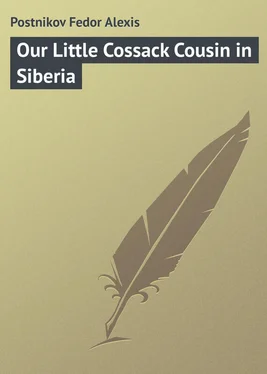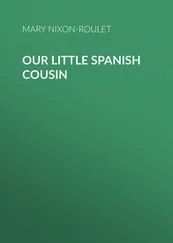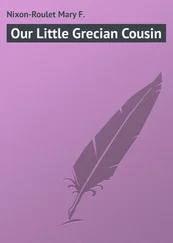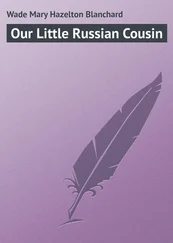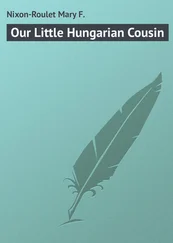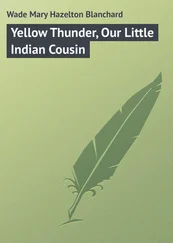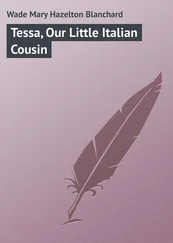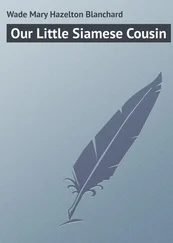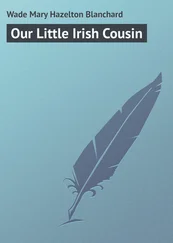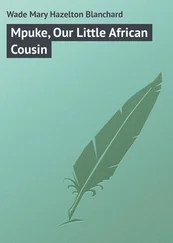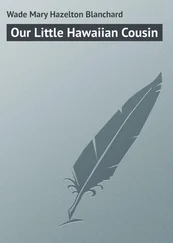Fedor Postnikov - Our Little Cossack Cousin in Siberia
Здесь есть возможность читать онлайн «Fedor Postnikov - Our Little Cossack Cousin in Siberia» — ознакомительный отрывок электронной книги совершенно бесплатно, а после прочтения отрывка купить полную версию. В некоторых случаях можно слушать аудио, скачать через торрент в формате fb2 и присутствует краткое содержание. Жанр: Русская классическая проза, на английском языке. Описание произведения, (предисловие) а так же отзывы посетителей доступны на портале библиотеки ЛибКат.
- Название:Our Little Cossack Cousin in Siberia
- Автор:
- Жанр:
- Год:неизвестен
- ISBN:нет данных
- Рейтинг книги:4 / 5. Голосов: 1
-
Избранное:Добавить в избранное
- Отзывы:
-
Ваша оценка:
- 80
- 1
- 2
- 3
- 4
- 5
Our Little Cossack Cousin in Siberia: краткое содержание, описание и аннотация
Предлагаем к чтению аннотацию, описание, краткое содержание или предисловие (зависит от того, что написал сам автор книги «Our Little Cossack Cousin in Siberia»). Если вы не нашли необходимую информацию о книге — напишите в комментариях, мы постараемся отыскать её.
Our Little Cossack Cousin in Siberia — читать онлайн ознакомительный отрывок
Ниже представлен текст книги, разбитый по страницам. Система сохранения места последней прочитанной страницы, позволяет с удобством читать онлайн бесплатно книгу «Our Little Cossack Cousin in Siberia», без необходимости каждый раз заново искать на чём Вы остановились. Поставьте закладку, и сможете в любой момент перейти на страницу, на которой закончили чтение.
Интервал:
Закладка:
F. A. Postnikov
Our Little Cossack Cousin in Siberia
PREFACE
The name Cossacks is given to a large part of the Russian population. These people are endowed with special privileges in return for specific military service. They are of different racial origin. There are ten separate voiskos , settled along the frontiers, those of the Don, Kuban, Terek, Astrakan, Ural, Orenburg, Siberian, Semir-yechensk, Amur, and Ussuri. These differ in many respects, though with a similar military organization, the primary unit of which is the stanitsa or administrative village.
The historical Cossacks are those of the Don and of the Dnieper Rivers in Russia, of whom it has been said that they were "originally passionate lovers of freedom who went forth to find it in the wilderness." The other Cossack divisions have been patterned after these by the Government. In the later sections the military spirit and the old Cossack traditions are carefully fostered.
Our book deals with the Ussuri Cossacks of Siberia, among whom Colonel Postnikov lived for many years, both as an officer and as a civil engineer. Although the story is written in the first person, it is in no sense an autobiography of the author, who was born in western Russia.
Besides the country around Ussuri River, other sections of Siberia and other classes of people than the Cossacks are described incidentally.
In the spelling of Russian names, an endeavor has been made to give some idea of the actual pronunciation.
The Editor.CHAPTER I
CHILDHOOD ADVENTURE
No, indeed, we don't sleep through our Siberian winters, nor do we coddle ourselves hanging around a fire, – not we Cossack 1 1 More properly Kozak or Kazak.
children.
I was brought up in Eastern Siberia, in a Russian settlement, on the Ussuri River, about fifty or sixty miles from where it joins the Amur. These settlements, you ought to know, were first established in the year 1857, in order to show the neighboring Manchus where Russian boundaries ended. The first were along the Amur, the later along the Ussuri River. No doubt I owe much of my hardiness to the fact that my ancestors were among the involuntary pioneers sent here by our government. 2 2 In the spring of 1857, a regiment of three sotnias of Cossacks from the Transbaikal region were chosen by lot to settle with their families along the Amur River. Here they were divided into small villages or stanitsas (Cossack posts) about fifteen miles apart. The land was then for the most part a wilderness. There were forests to be cleared and marshes to be drained. In addition to doing this pioneer work the Cossacks had to defend the frontier toward China and provide postal communications between the Amur and the section from which they had come. – The Editor.
The source of the Ussuri is so far south that in the early spring there is always danger of a sudden breaking of the ice near its mouth and a consequent overflow. Now it is strange, but whenever we children were forbidden to go on the river something would tempt us to do it.
"You mustn't go on the ice, Vanka," father said to me one day as he left for Habarovsk, the nearest big city.
I remembered the command all right until I met my chum Peter. He had a fine new sled to show me. It could go so swiftly that when he proposed that we cross to the Manchurian side, I said quite readily, "Whee! That'll be grand; it isn't far, and we can get back in no time!"
Peter was on the sled which I was pulling, when we neared the low Chinese banks of the forbidden river. They were not as near as they had seemed. It had taken us a full half hour to cross, although we ran all the way, taking turns on the sled. Suddenly Peter called out in a strange tone of voice: "Stop, Vanka, stop! We must run. Look! Hongoose!" 3 3 Members of organized bands of Chinese robbers.
I stopped so suddenly as almost to throw Peter off of the sled, and saw three Manchurians on the bank. They were standing near their horses who had huge bundles slung across their backs.
"Why," I said slowly, resolved not to be frightened, "those are merchants."
"No," said Peter, his lips trembling; "they have rifles."
"Ye-es," I reluctantly admitted; "but see their big bundles. They are certainly traders."
"We had better run – " began Peter stubbornly, turning from me.
"You're nothing but a baba (old woman)," I said contemptuously, a tingle of shame covering my cheeks at the mere thought of me, a Cossack boy, running from a Chinaman. What would my father say, or my grandfather? Whoever heard of their doing such a thing? Yet, to my great surprise, my knees trembled as I recalled a scene of two years ago, when the brave Cossack Kontuska was found two miles from our village with his head smashed open, and it had been decided that he had been murdered by the Hongoose. Then, with a certain feeling of being protected, there also flashed through my mind a picture of the revenge expedition that the Cossacks had organized, and even of the Chinese horse that had been brought later, as one of the spoils, to my own home.
As we stood thus, one of the Manchus suddenly threw the bundles from off his horse, and, leaping on it, rode at full gallop towards us. I caught my breath, yet instinctively picked up a huge piece of ice, while Peter raised the sled into the air with both his hands.
It was a regular Siberian winter morning, dry and clear. The sun was still in the east over the high Russian bank, so that it fell full on the approaching Chinaman, as we called him. The snow flew out like sparks of fire from under the hoofs of his horse, accompanied by a peculiar crunching sound. When a few hundred feet from us, the Manchurian changed the gallop to an easy trot.
" How a ma? " 4 4 Northern Chinese for "Hello."
he said, when he had come up, surveying us with a broad smile.
With a deep feeling of relief something made me recognize the fact that he had not come to slay but merely to satisfy his curiosity. I noticed the round red circular spot on his breast as well as the red ball on his cap. These, I knew, indicated that he was a regular army officer. With an awkward show of friendship he turned us round and round, touching our clothes, looking inside of our hats, and then said something which puzzled us. But when he had twice repeated, " Shango-shango ," I understood that it meant that all was right, but whether it related to our clothes or to us, I hadn't any idea.
To show that I wasn't afraid, I shook my fist at him saying, "You are bushango ." 5 5 Not good.
He understood, and smiling good-naturedly said in broken Russian: "No, no, me shango too." Then, opening his fur coat and putting one hand under it, he pulled out something wrapped in a small piece of rice paper. This he opened. It contained a few cookies smelling of peanut oil, and these he smilingly offered to us.
I leaned heavily first on one foot, then on the other, while Peter looked sideways, unable to decide whether it would be proper to accept such a gift from a Chinaman or not; but tempted by a desire to show it to our parents, we took it shyly. "How interested mother will be," I thought, quite forgetful of my disobedience. Mother, however, never got a glimpse of the treat; every crumb was eaten long before we got half way back.
When I reached home, I found mother in a very nervous state of mind. Some one had spread the report of our trip across the border, and in her anxiety she imagined all sorts of terrible things to be happening to us.
No sooner did she see me than she put down my baby sister, who had fallen asleep in her arms, and embraced me. A moment after she still further relieved her wrought up feelings by giving me a sound whipping, and still later, after I had washed myself and had had my dinner, both she and my older sister listened with many questions to very minute particulars of our little adventure.
Читать дальшеИнтервал:
Закладка:
Похожие книги на «Our Little Cossack Cousin in Siberia»
Представляем Вашему вниманию похожие книги на «Our Little Cossack Cousin in Siberia» списком для выбора. Мы отобрали схожую по названию и смыслу литературу в надежде предоставить читателям больше вариантов отыскать новые, интересные, ещё непрочитанные произведения.
Обсуждение, отзывы о книге «Our Little Cossack Cousin in Siberia» и просто собственные мнения читателей. Оставьте ваши комментарии, напишите, что Вы думаете о произведении, его смысле или главных героях. Укажите что конкретно понравилось, а что нет, и почему Вы так считаете.
